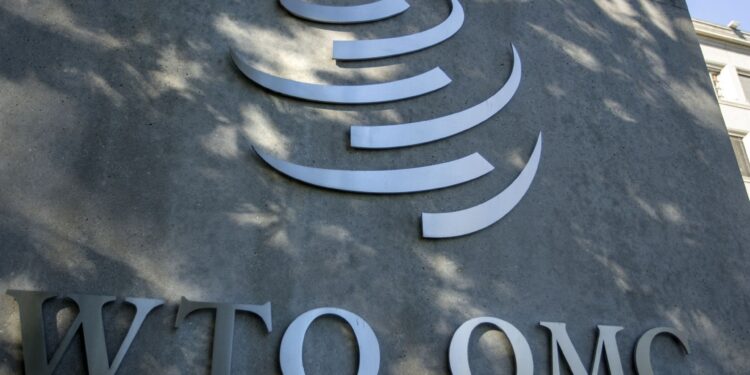The World Trade Organization said in its report issued yesterday, Thursday, that artificial intelligence (AI) has the potential to shape the future of international trade, focusing on trade costs, reshaping trade in services, and increasing the exchange of goods and services associated with artificial intelligence, as well as its impacts. On the competitive advantages of global economies.
Reduce costs and enhance inclusivity
The report, entitled “Trade with Intelligence… How does artificial intelligence shape and affect international trade?”, a copy of which was obtained by Al Jazeera Net, explained that artificial intelligence can significantly reduce trade costs by improving logistics operations, supply chain management, and regulatory compliance.
For example, AI can automate customs clearance processes, facilitate compliance with trade regulations, and predict potential risks.
The report indicated that reducing trade costs could contribute to reducing trade barriers, especially for developing economies and small and medium-sized companies, enabling them to enter global markets and participate more broadly in international trade.
The organization expected that the comprehensive adoption of artificial intelligence and increased productivity until 2040 would lead to a real growth in global trade of 14%.
In a more cautious scenario with uneven adoption of AI and low productivity growth, trade growth might be only about 7%.
The artificial intelligence gap
The report warned of the risk of a widening artificial intelligence gap between rich and poor economies, as well as between large and small companies.
He also pointed to the challenges associated with data governance and the need to ensure reliable artificial intelligence. He stressed the need for greater clarity on the relationship between artificial intelligence and intellectual property rights.
The Director-General of the World Trade Organization, Ngozi Okonjo-Iweala, said in the introduction to the report that the organization seeks to strengthen its role as a forum for negotiations and setting rules to support the benefit of artificial intelligence and reduce its risks.
She added that the organization could provide a multilateral framework that enhances political coordination and addresses commercial aspects related to AI governance.
Transformations in services trade
The report highlighted how artificial intelligence can reshape patterns of trade in services, especially those delivered digitally. These services are expected to witness a cumulative growth of approximately 18% if artificial intelligence is comprehensively adopted and productivity increases.
The report warned that the lack of international coordination could exacerbate regulatory fragmentation related to artificial intelligence, which could hinder the commercial opportunities it provides.
He stressed the need to bridge the gap in adopting artificial intelligence to ensure that the benefits are achieved comprehensively.
With the great potential offered by artificial intelligence, the report stresses the importance of international cooperation to ensure that everyone benefits from this technology, reduces its risks, and enhances inclusiveness in international trade.



